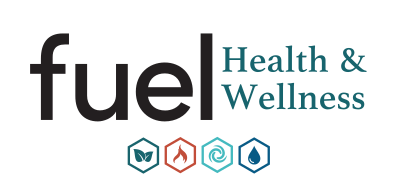Embarking on a weight loss journey often feels like climbing a mountain with shifting trails. You start strong, see early wins, then hit plateaus or lose motivation. What if the missing piece isn’t another diet or gadget, but real-time guidance tailored just for you? Lifestyle coaching goes beyond meal plans and workouts—it taps into behavior, mindset, and sustainable habits to help you keep the weight off for good.
In this blog, you’ll learn how personalized coaching can transform short-term success into long-term results. We’ll explore evidence, practical strategies, and how you can integrate healthy lifestyle coaching with your existing plan. Ready to unlock a more resilient approach to weight loss? Let’s dive in.
Understanding Lifestyle Coaching

Lifestyle coaching is a collaborative process where a certified coach partners with you to set realistic goals, identify barriers, and build lasting habits. Unlike one-size-fits-all programs, it adapts to your personality, schedule, and challenges.
Your coach becomes your accountability ally, helping you:
- Break down goals into achievable steps
- Track progress and celebrate non-scale victories
- Identify emotional triggers and stressors
- Adjust nutrition, movement, and sleep routines
By addressing the root causes of weight gain—habits, mindset, environment—lifestyle coaching fosters sustainable change.
Key Components of a Lifestyle Coaching Program
- Behavior Change Techniques Leveraging methods like motivational interviewing and habit stacking to create new routines.
- Nutrition and Activity Planning Crafting balanced meal guidelines and movement strategies tailored to your preferences.
- Accountability and Support Regular check-ins, progress reviews, and problem-solving sessions to keep you on track.
- Mindset Coaching Building self-efficacy, resilience, and a positive relationship with food and exercise.
Evidence Supporting Coaching for Sustainable Weight Loss

Research consistently shows that individuals working with a coach lose significantly more weight than those going it alone. In one study, people who attended at least 20 coaching appointments lost an average of 12% of their body weight within 12 weeks, compared to much lower results for self-guided efforts. Coaching not only boosts initial weight loss but also helps you maintain it long term by embedding new habits into daily life.
A systematic review of behavior-change interventions reported that multi-component programs—combining diet, exercise, and coaching—yielded more clinically significant weight loss than single-component approaches. The ongoing support and personalized problem-solving provided by coaches help navigate plateaus and setbacks, critical for long-term success.
How Coaching Facilitates Nutrition and Behavior Change
Transforming your eating habits starts with small, consistent adjustments. Coaches often introduce:
- Mindful Eating Practices: Focusing on hunger cues, chewing slowly, and savoring flavors to reduce overeating.
- Smart Meal Structuring: Balancing macronutrients—protein, healthy fats, complex carbs—to keep you full and energized.
- Environment Tweaks: Organizing your kitchen, prepping meals in advance, and minimizing trigger foods.
- Habit Tracking Tools: Using apps or journals to monitor food intake, sleep, water, and steps.
By weaving these elements into your daily routine, coaching guides you away from short-term fixes toward a lifestyle you can sustain.
Integrating Coaching with Your Plan
Whether you’re already following a structured diet or exploring new options, lifestyle coaching can amplify your results. Suppose you’re working with our Weight Loss & Nutrition Grand Rapids program. In that case, your coach will align nutritional recommendations with your preferences, helping you transition from restrictive diets to flexible, balanced eating.
Midway through your journey, you might wonder, “Is my current plan holding me back?” Our coaches can perform a thorough audit via Is Your Diet Holding You Back to identify gaps and adjust accordingly. This proactive approach stops minor issues—like nutrient deficiencies or unrealistic goals—from derailing your progress.
Setting Realistic Goals and Tracking Progress

One of the pillars of successful coaching is SMART goal setting: Specific, Measurable, Achievable, Relevant, Time-bound. Instead of vaguely aiming to “eat better,” you might set a goal to include one serving of vegetables at every meal this week.
Your coach helps you break down larger objectives—like losing 30 pounds—into manageable milestones. Tracking progress through weight logs, body measurements, and performance improvements (e.g., walking 10,000 steps daily) keeps you engaged and motivated, even when the scale stalls.
Building Accountability and Motivation
It’s natural to experience dips in motivation. Lifestyle coaches employ strategies such as:
- Regular Check-Ins: Weekly or biweekly sessions to celebrate wins and troubleshoot challenges.
- Social Support: Encouraging you to involve friends or family for added accountability.
- Rewards System: Identifying non-food rewards—new workout gear, massage, or a night out—to mark achievements.
- Mindset Shifts: Teaching self-compassion, reframing setbacks as learning opportunities, and strengthening resilience.
By reinforcing positive behaviors and addressing obstacles proactively, coaching helps you sustain momentum through plateaus and life’s demands.
The Role of Physical Therapy and Movement
Weight loss isn’t just about diet; movement is key. Our coaches often collaborate with Physical Therapy experts to design safe, effective exercise routines, especially if you have injuries or chronic pain.
Physical therapists can:
- Assess mobility and muscle imbalances
- Recommend corrective exercises to prevent injury
- Integrate strength training and functional movement
Combining lifestyle coaching with targeted physical therapy ensures you build lean muscle, support metabolic health, and reduce discomfort—boosting adherence and long-term success.
What to Expect: Grand Rapids Weight Loss Program
Participants in our Grand Rapids Weight Loss Program expectations typically experience:
- An initial assessment to set personalized goals
- Customized nutrition and coaching plans
- Access to our multidisciplinary our expert team, including dietitians, psychologists, and trainers
- Regular progress reviews with data tracking
- Gradual shifts toward self-sufficiency and confidence in maintaining habits
By the end of your program, you’ll have acquired the skills, support network, and mindset needed to navigate future challenges independently.
Coaching vs. Self-Guided Weight Loss
| Aspect | Self-Guided | Lifestyle Coaching |
|---|---|---|
| Accountability | Low (depends on self-discipline) | High (regular coach check-ins) |
| Personalization | Generic diet recipes | Tailored plans based on habits and preferences |
| Behavior Change Support | Limited to self-help resources | Expert guidance in real time |
| Motivation | Variable | Consistent encouragement and mindset coaching |
| Long-Term Maintenance | Often challenging | Emphasizes habit formation and resilience |
Key Nutrition & Behavior Change Strategies
| Strategy | Description | Benefits |
|---|---|---|
| Mindful Eating | Slowing down, focusing on hunger and satiety cues | Reduces overeating, improves enjoyment |
| SMART Goal Setting | Specific, measurable, achievable, relevant, timed | Creates clear roadmap, boosts confidence |
| Habit Stacking | Linking new habits to existing routines | Simplifies adoption of healthy behaviors |
| Environmental Tweaks | Prepping meals, organizing kitchen, mindful snacking | Minimizes temptation, streamlines choices |
| Regular Check-Ins | Scheduled progress reviews with coach | Maintains accountability, identifies issues |
Choosing the Right Coach: Our Expert Team
Finding a coach who resonates with your goals and style is vital. Our Fuel Health & Wellness coaches hold certifications in nutrition, behavior change, and motivational interviewing. They work collaboratively with our our expert team to ensure you receive holistic support—from meal planning to stress management.
Getting Started: Nutrition Counseling and Beyond
If you’re ready to elevate your journey, start with Nutrition Counseling for Weight Loss. You’ll receive:
- A comprehensive nutritional assessment
- Personalized meal guidelines
- Behavior-change coaching sessions
- Ongoing support as you transition toward independence
Together, we’ll transform short-term wins into lifelong health.
Fuel Health & Wellness is proud to offer comprehensive lifestyle coaching and weight loss services in Grand Rapids. If you’re ready to rewrite your story and achieve lasting wellness, our team is here to guide you every step of the way.
Frequently Asked Questions
1. Can a health coach help with weight loss?
Yes. Working with a health coach provides individualized guidance, accountability, and behavior-change strategies proven to accelerate weight loss and improve maintenance.
2. How long does it take to lose weight with a coach?
Results vary, but research shows people attending 20 coaching sessions often lose around 12% of body weight in 12 weeks. Expect steady progress with sustainable habits.
3. What does a lifestyle coach do?
A lifestyle coach assesses your needs, sets SMART goals, plans nutrition and activity, tackles emotional triggers, and provides ongoing motivation to ensure long-term success.
4. Is coaching necessary for sustainable weight loss?
While not strictly necessary, coaching dramatically improves outcomes by addressing habits, mindset, and accountability—elements often missing in self-guided efforts.
5. How do lifestyle coaches help maintain weight loss?
Coaches focus on habit formation, resilience training, and problem-solving to navigate plateaus and setbacks, equipping you with tools to sustain changes indefinitely.


